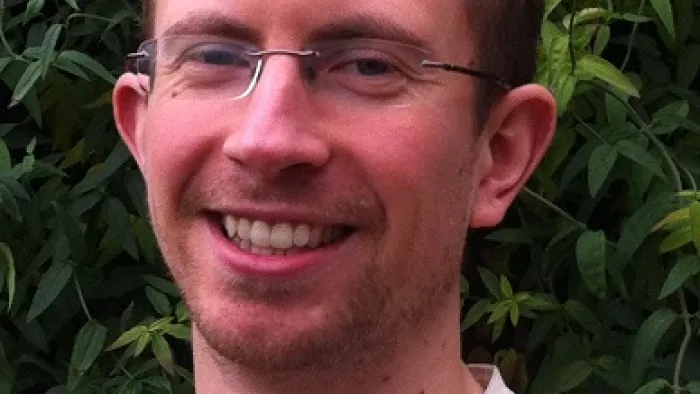
Special mention: Operates collectively
Mike Smith, Oxfam International (UK) / Frontline Humanitarian Logistics Initiative
You have received a Special Mention in the category of “operates collectively”. Can you tell us more about your work in this area?
In the last year, I’ve convened practitioners from over 30 organisations to produce the Frontline Humanitarian Logistics initiative’s data standard. This standard establishes a common understanding of the processes and data required to support the “last mile” of our humanitarian logistics operations, which can account for as much as 60 to 80% of our humanitarian response costs. We aim to increase effectiveness by supporting the interoperability of information systems between development organisations. This will lower the cost of our operations, and ultimately can help strengthen local control over resources in aid response and recovery.
Rather than jumping feet first into the initiative, we held a learning exercise directly with participants to ground our efforts in an up-to-date understanding of the sector’s needs and challenges. It meant we were clear on what we needed to produce and how to successfully collaborate across a diverse set of stakeholders that included representatives from NGOs, international agencies, academia and, crucially, technology partners.
What challenges have you faced? Have there been any solutions that worked particularly well?
Many challenges were encountered along the way – not least the COVID-19 pandemic – that completely changed our approach. We moved from a couple of in-person workshops to numerous online gatherings across ten countries to iteratively develop the standard. This meant we could save resources and challenge our assumptions more frequently, enabling us to achieve more and publish faster.
Where do you see your work going next?
We launched the standard in August 2020, and are already seeing a number of NGOs starting to use it to review and improve their processes, as well as technology partners embedding it into their products. We're now scoping the next phase of the collaboration. This will help us support the global adoption of the standard and start to unlock the potential that the common understanding and sharing of information can bring.
Why is this work so important to you?
This is a first-of-its-kind initiative that has brought together an unusual composition of stakeholders to help solve some of our sector’s information challenges in a novel way. I feel excited by the potential to unlock transformational changes that we will help us operate more closely as a sector.
What changes to the humanitarian sector are needed in the next 10 years? What are the main obstacles to achieving this?
Now more than ever, we must find new ways of working that include non-traditional stakeholders, including those from the private sector. This will allow us to keep up with the increasing demand for humanitarian and recovery assistance despite restricted resources. As well as this practical need, there is also a moral imperative to shift the focus of our activities to the last mile. The people that are most affected themselves are in the best position to create the most effective and efficient responses, both in the short- and the longer term.
2020 has presented multiple challenges globally. What are the key lessons for the humanitarian sector this year?
COVID-19 has taught us important lessons in realism and humility. We’ve seen that everyone, everywhere, acting on their primary urge to help society, can have a tremendous impact for good. We should not get too lost in any single grand response plans and instead include these grass-roots activities as a means to consistently and sustainably change the world. This requires that we get far better at managing the mass of information generated in real-time so that everyone can contribute in the most impactful, mutually reinforcing way.
Why do you think that in an era when we have more access and communications, crises have increased in numbers and gravity?
Much of what we see today has occurred at some level (climate change aside) throughout time: access and communication simply mean we see it far more. While this increased visibility helps us to feel more connected in the changing world, it comes with added and often conflicting complexity. If we don’t collectively create the tools to understand and crystallise the vast amount of information now available, communications could become a problem in its own right – both for perceptions of crises, but also our response. Initiatives like Frontline Humanitarian Logistics are starting to form a common understanding of our activities and bring much needed clarity, acknowledging that far more is needed.
Why is important to transform the sector and if there is one thing that you would encourage your fellow humanitarians to do, what would it be?
Greater cooperation between humanitarian actors has an enormous potential to increase our collective ability to respond to crisis. We should do this through seeking a greater common understanding of our activities – and sharing of information – while respecting that a healthy response includes friendly competition. Together these will ensure we respond as quickly and as effectively as we can.
